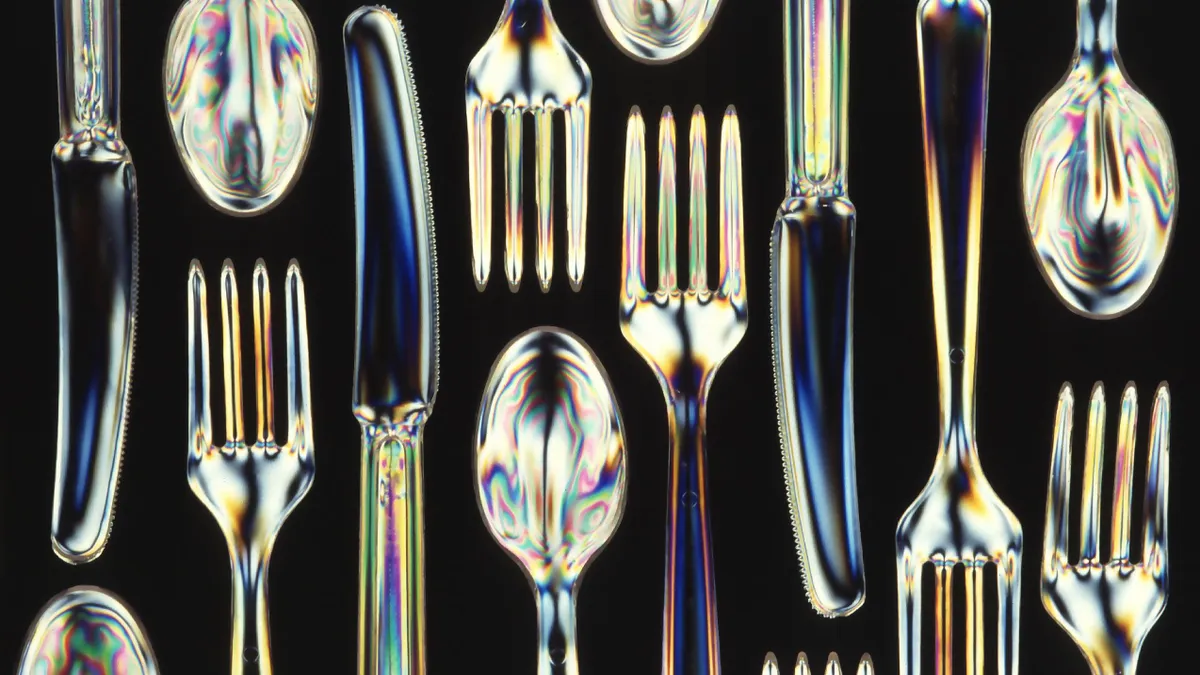Dive Brief:
- A team of scientists from IBM Research and Stanford University announced a new way to make cheaper biodegradable plastics from plants such as beets or palm trees. These plastics could be turned into utensils or medical devices.
- The team used an organic chemical catalyst to convert the plant material which requires less energy and doesn't add heavy metals to the process as current methods do. These heavy metals in the plastic don't decompose over time, whereas the new metal-free material can decompose naturally.
- The results were recently published in a study by the journal Nature Chemistry, authored by Xiangyi Zhang, Gavin Jones, James Hedrick and Robert Waymouth.
Dive Insight:
This is the latest in a series of discoveries coming out of IBM Research's Almaden lab in California. In June, the lab announced that it had found a way to convert polycarbonates — such as CDs, baby bottles or smartphones — into new plastic which can be used for water purification or medical applications. The team's newest findings also offer interesting potential for affecting the waste stream.
"What's exciting about this discovery is that we now have a cheaper way to convert plants into common consumer plastics that decompose over time, providing an alternative to recycling plastics," said Jones, a computational chemist with IBM Research, in a press release. "Making biodegradable plastics mainstream means less impact on our solid waste systems."
If this new conversion method can be scaled up it will join an increasing number of innovative biodegradable products made from mushrooms, eggshells, seaweed and more. The challenge now is to ensure that organic processing systems are set up to handle all of these materials. Questions about the recyclability of oxo-biodegradable material have recently come up in England and contamination from compostable plastics has been an issue in the Boston area.















